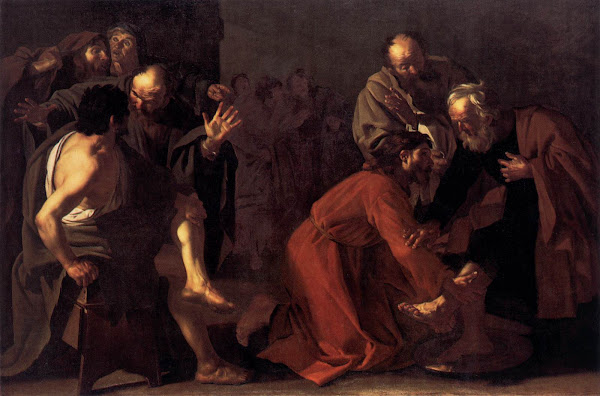HAMLET AS SERVANT-PRINCE: A PARAPHRASED & OFTEN-MISSED BIBLE ALLUSION

HAMLET AS SERVANT-PRINCE: A PARAPHRASED & OFTEN-MISSED BIBLE ALLUSION: Hamlet: I am glad to see you well. Horatio! - or I do forget myself. Horatio: The same, my lord, and your poor servant ever. Hamlet: Sir, my good friend - I'll change that name with you. Four key Shakespeare & the Bible scholars missed this, while Peter Milward (on the tragedies) caught it: Hamlet says he would be his friend Horatio’s “poor servant,” not the other way around. This alludes to multiple gospel passages in which Jesus says that if you would be greatest, you must be servant of all (Matt 20:26; Mark 9:35; Luke 22:26) and that Jesus won’t call his disciples servants any longer, but friends (John 15:15), and he washes their feet to demonstrate such service (John 13:1-9). [IMAGE: Dirck van Baburen (circa 1594/1595–1624) / Christ Washing the Apostles Feet / circa 1616 / Public domain via Wikipedia.] Why does it matter? Along with Hamlet’s scolding of Polonius for his judgmental and...

